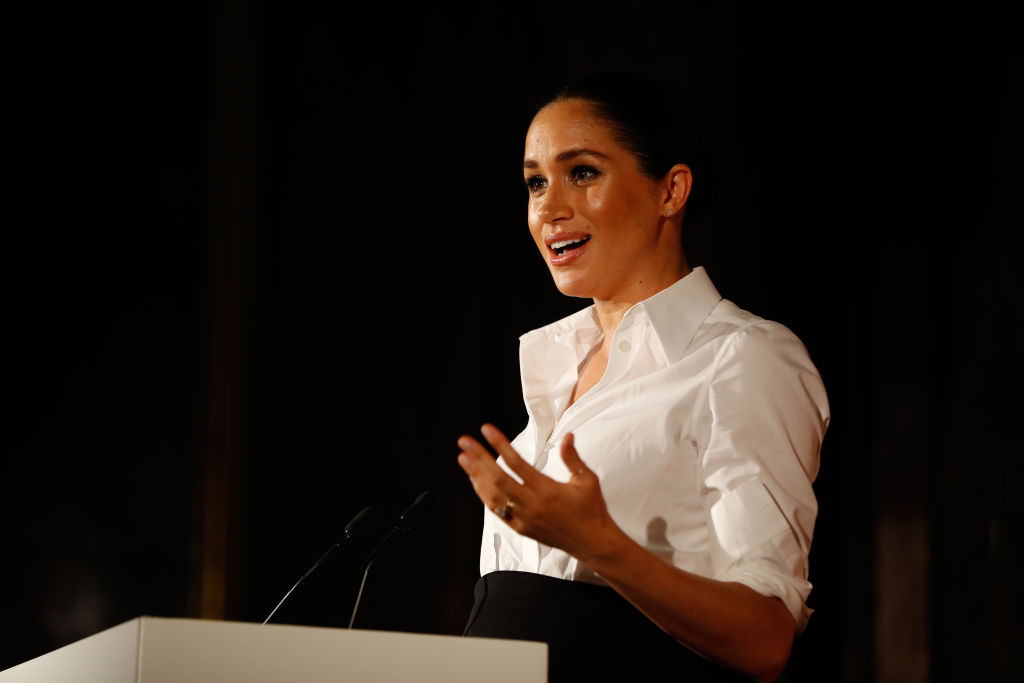Meghan Markle has reportedly backed calls to ‘decolonise the curriculum’. This campaign to promote ethnic minority thinkers in place of ‘male, pale and stale’ academics also has support from the Labour party. Angela Rayner, shadow education secretary, has said that ‘like much of our establishment, our universities are too male, pale and stale and do not represent the communities that they serve or modern Britain’. If Labour comes to power, Rayner promised to use the Office For Students to change things. But this move to ‘decolonise the curriculum’ is in fact a big mistake.
Firstly, the campaign conjures up images of dusty old men engaged in an unconscious conspiracy to ensure ‘non-western’ worldviews are stamped out. The implications is that those from an ethnic minority and women are locked out of the academy. In reality, social science and humanities departments are nearly all progressive and left-wing. From Edward Said’s post-colonial critique of Western Orientalism, Marxist critiques of global imperialism, through to the postmodern deconstructions of ‘Western hegemony’ by the likes of Michel Foucault and Jacques Derrida, Western social science and humanities are full of alternative viewpoints. The more telling challenge would be to find a university offering any course, anywhere, that celebrates the achievements of Western civilisation. For many academics, all evils seemingly flow from the West.
Secondly, the movement to ‘decolonise’ the university is highly selective in its cherry picking of facts and targets. The target of the campaign is the original sin of Western imperialism and the horrors of transatlantic slavery. But this focus on the bad ignores the West’s role in bringing this barbaric trade to an end. In its reading of history, the Royal Navy’s suppression of the transatlantic slave trade, the sacrifice of hundreds of thousands of male and pale soldiers in the US’s civil war to end American slavery, or the continuity of non-Western slavery today – India is now ranked as having over 18 million souls in bondage – are overlooked or largely ignored.
Thirdly, this movement comes at an odd time geopolitically. Trump’s trade wars with China and his seeming disdain for US-led security alliances, the remarkable economic rise of China and its global assertiveness, an increasingly restive and illiberal Russia and a still bubbling Islamist insurgency in the Middle East, means that the Western liberal international order has never looked weaker.
As a result of the West’s post-war boom (which helped fund the social welfare state and universities throughout Europe) the post-1968 generation of left intellectuals could call for revolution confident that, if their dreams of social transformation took place, they would do so at what was then the high point of Western economic power. The theory was that if Western capitalism could be overthrown, its global power would be used to usher in a new socialist utopian dawn. Things are very different today. Western power is in decline. So too is intellectual self confidence in the West about our shared cultural and intellectual heritage. While universities in the West battle to ‘decolonise’ themselves, it’s safe to say that this navel-gazing is not taking place elsewhere in the world. Are Chinese, Russian and Islamic academies seeking to engage in endless struggle sessions? Is Vladimir Putin or Xi Jinping seeking to direct the Russian and Chinese university system to engage in endless auto-critique for the sins of Eastern European colonisation or China’s imperialism in large parts of Africa today? I wouldn’t bet on it.
Of course it is right for Western academics to engage in critique. But the calls to ‘decolonise the curriculum’ are selective and look geopolitically dubious. Rather than a call for equality, they are a bid to reinsert racial and gender categorisation into intellectual life where it isn’t needed. So while Meghan Markle’s intentions might be good, the last thing our universities need are to have ‘male, pale and stale’ voices sidelined.
Doug Stokes is professor of international security and strategy at Exeter University






Comments